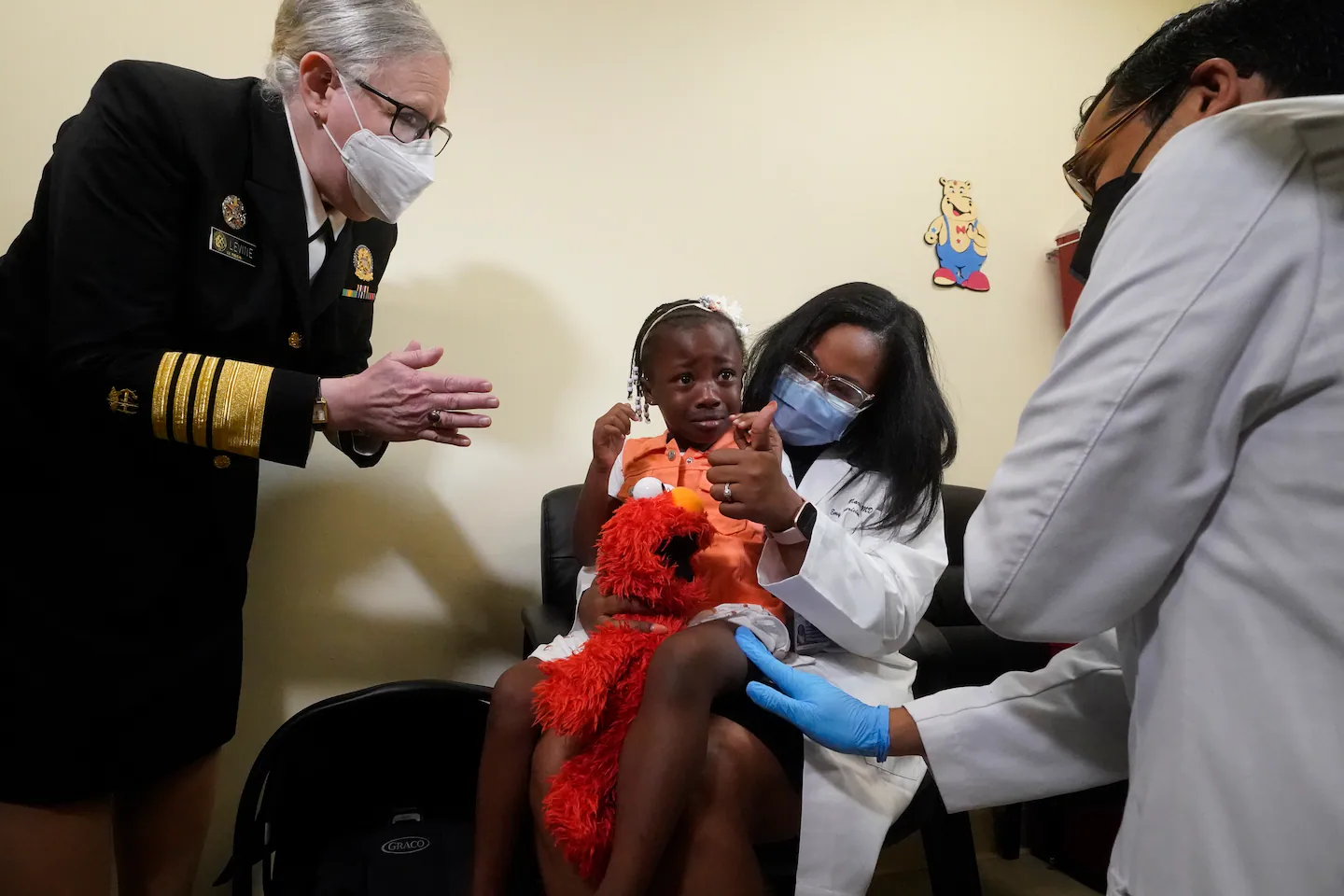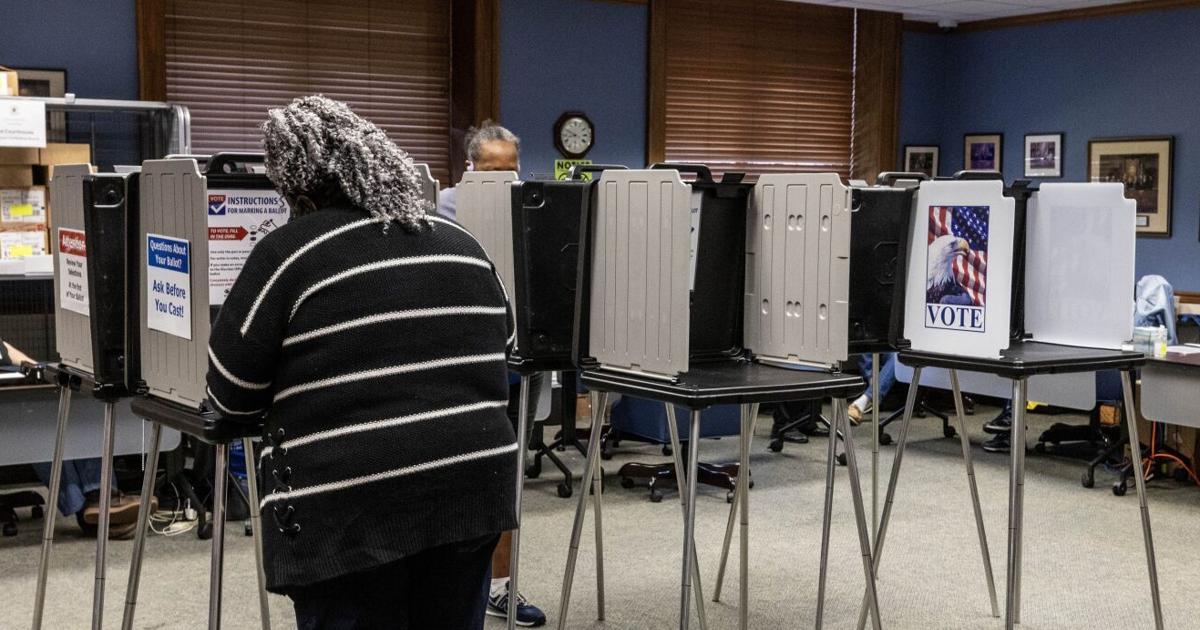
But Massachusetts residents have some of the highest vaccination rates in the country — 96 percent of kindergartners in the state are immunized. So, while long-term, the elimination of the vaccine mandates poses major health questions, more immediately for families scheduling their occasional visits to Florida, the risk right now is probably pretty low, according to epidemiologists interviewed by the Globe.
Existing protections don’t “evaporate overnight,” said Bill Hanage of Harvard University. As long as individuals are up to date on their own immunizations, they shouldn’t worry, he said.
Still, there are some people who, because of health conditions, are more at risk, specialists caution; moreover, the long-term sharp decline in vaccination rates in Florida, if that state drops its mandates, introduces real risks of outbreaks of diseases that had long been under control.
If passed, the proposal would mark the first rollback of school vaccine mandates, and health experts warn that over time it could set the stage for outbreaks of measles and other diseases that travel south to north and back through classrooms, airports, and theme parks.
Florida is a popular destination for families from all over, for vacation or to visit grandparents and other relatives, and there are particular close links with Massachusetts, such as Red Sox spring training in Fort Myers. Currently, 88 percent of kindergartners in Florida are fully vaccinated against measles — below the 95 percent threshold needed for herd immunity.
Massachusetts Governor Maura Healey called the prospect of Florida dropping its mandates “crazy” earlier this month.
“I think a lot of people are going to think twice about going to Florida,” she said. “I don’t think measles is a souvenir you were looking to return with after going to Disney World.”
The most immediate risk would be to people who, because of health conditions, do not have a strong immune response to vaccines—though that group is small and typically ends up being protected by herd immunity.
Most measles cases in the United States now originate from overseas in unvaccinated people, Hanage said. However, a large outbreak in Florida could send cases north.
“Any of these situations where people are making a whole bunch of new contacts with people offer the opportunities for transmission and for diseases to spread. And if there is less vaccination, we would expect there to be more of that happening in Florida. The thing about the travelers, though, is that if they’re vaccinated, they should be comfortable,” he said.
Public health officials also point out that communities with low immunization rates aren’t just vulnerable to measles; they’re at risk for other highly contagious diseases such as whooping cough and chickenpox.
“While no vaccine is 100 percent effective, vaccinated kids do not have the same kind of reaction to a severe disease,” said Dr. Nahid Bhadelia, founding director of Boston University’s Center on Emerging Infectious Diseases. “Infectious diseases don’t care about politics. They will infect who they can and propagate.”
But despite the scientific backing, some families with feet in both states are questioning how they would handle such visits if Florida drops its mandate.
Mark Garvin, 67, who has homes in South Dartmouth and Vero Beach, Fla. Fully vaccinated and planning to get annual boosters, Garvin is not particularly worried about his own health. His bigger concern, he said, is how this would affect his family members in the future.
“We hope to welcome grandchildren in the next few years. I certainly would not allow our kids to visit [us in Florida] if pregnant, potentially pregnant, or before their kids have been vaccinated. I’m also wondering about my immunity. Does it last forever? It’s been 60 years since I had the mumps.”
That same unease is shared by other Massachusetts seniors who spend part of the year in Florida, like Stuart Mushlin, a retired Boston physician. At age 7, Mushlin contracted measles encephalitis and spent two weeks in a coma, leaving him with mild weakness on his right side when fatigued.
“The fact that vaccinations for schoolchildren won’t be required in Florida is not only stupid, it’s positively dangerous,” Mushlin said, warning that without them, children and vulnerable adults alike face risks from illnesses such as measles, polio, and pneumonia.
At 78 years old, Mushlin said he won’t stop traveling south, but “if I know someone is an antivaxxer, I will avoid being with them socially. If Florida has an epidemic of, say measles, I would likely self-quarantine and not go out.”
Alison Yager and her family split time between Florida and Massachusetts over the past two years before making the move north permanently this summer. She expects just the elimination of the mandate alone will prompt some families — on both sides of the vaccine debate — to act.
“I think it may mean some families may choose to leave [Florida] to protect the health of their kids. It may mean families who have immunocompromised kids or adults start to question if they’re safe living in Florida if we start to see spikes in disease outbreaks. I imagine for some families who are vaccine skeptics, it will draw them to Florida,” she said.
That latter example could include some like Marissa Guradino, a mother of two who recently moved her family from Tampa Bay, Fla., back to her hometown of Tewksbury, Mass., to have more family support for her kids, ages 5 and 8.
“I’m in full support of Florida trying to eliminate all vaccine mandates for schooling, and that doesn’t deter me from traveling there at all,” said Guradino, 31. “Had I known they would get rid of vaccine mandates, I might even have stayed in the state.”
School vaccine mandates in the United States date to the late 19th century, when Massachusetts became the first state to require smallpox vaccination for schoolchildren in 1855. There is no federal law requiring states to impose such mandates; instead, each state sets its own list of required immunizations, leading to wide variation. All 50 states mandate at least some vaccinations for school entry, but the number and type of required shots differ. At the minimal end, every state, including Florida, requires core vaccines that include measles, mumps, and rubella; diphtheria, tetanus and pertussis; polio, and chickenpox for school entry. New Hampshire, which bans mandates on COVID vaccines, is among the more lax. In 2022, state hospitals and medical facilities were required to grant religious and medical exemptions from vaccination requirements. There is also pending legislation in New Hampshire to make vaccines such as chickenpox and Hepatitis B optional.
In addition to the core vaccines, students in Massachusetts are required to be immunized from Hepatitis B. Parents may claim a religious exemption by submitting a letter stating the shots conflict with their beliefs. While the Massachusetts Department of Public Health outlines the required vaccines, local school districts are responsible for ensuring compliance with state requirements.
Florida officials have framed their proposal to eliminate mandates as a defense of individual rights. Meanwhile, lawmakers in Massachusetts are moving in the opposite direction and are considering tightening vaccine requirements. On Sept. 4, Massachusetts became the first state to require that insurers cover COVID shots and other state-recommended vaccines, pushing back against new federal limits under Health Secretary Robert F. Kennedy Jr.
Two bills before the Legislature would eliminate religious exemptions for school immunizations and require all elementary and secondary schools to annually report student immunization and exemption rates to the state.
“School vaccination mandates have stayed in place for a long period of time in the [United States], and they’ve actually been very effective in getting our population immunity to a level where we haven’t seen many of the childhood diseases … vaccines have become like a victim of their own success,” said Dr. Bhadelia.



